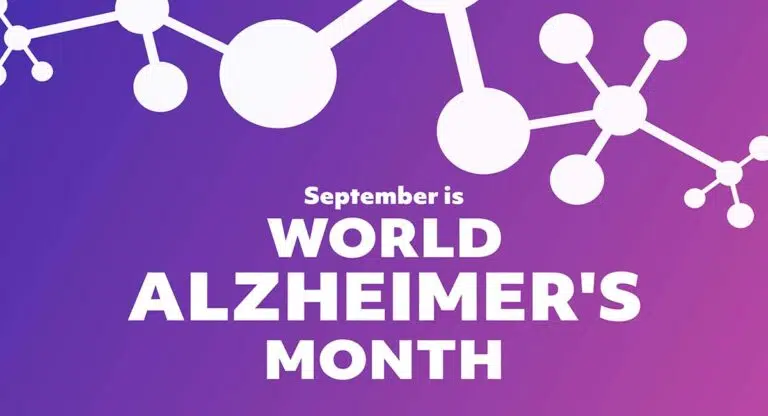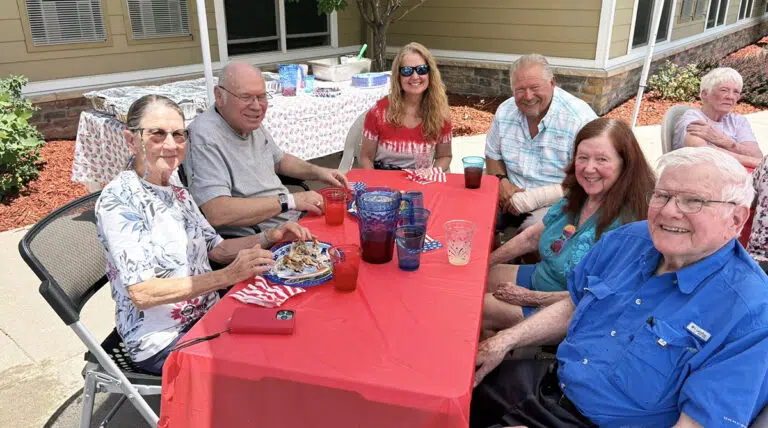III. Recognizing the Need for Memory Care
Key Warning Signs That Indicate Increased Care Needs
Safety Risks
- Forgetting to turn off appliances.
- Wandering away from home or getting lost in familiar places.
- Medication errors (e.g., taking the wrong medication, missing doses, etc.).
- Difficulty following directions or staying on task with specialized activities.
- Leaving doors or windows open, creating an unsafe environment.
- Repeatedly forgetting to lock doors or secure valuables.
- Difficulty recognizing potential trip or fall hazards.
- Increased vulnerability to financial exploitation due to impaired judgment or trust.
Decline in Self-Care
- Neglecting or poor personal hygiene.
- Severe or unintentional changes in weight.
- Choosing inappropriate clothing for the weather or season.
- Forgetting to take medications or attend medical appointments.
- Difficulty managing household chores (e.g., laundry, cleaning, etc.).
- Failure to maintain a daily routine or healthy habits.
Increased Dependency
- Struggling with daily living tasks (e.g., dressing, bathing, feeding).
- Needing help with meal preparation, cooking, or eating.
- Dependence on others for transportation or travel.
- Difficulty managing finances.
- Difficulty navigating familiar surroundings or remembering the way home.
- Requiring frequent reminders to complete routine care tasks (e.g., brushing teeth, taking medications, etc.).
Caregiver Burnout: It's OK to Seek Help
“The death rate for the dementia family caregiver is three out of 10 die before the person with the dementia dies and that is due to the stress of doing care”
- Dr. Tam Cummings
Signs of Burnout
- Physical and emotional exhaustion.
- Restlessness and difficulty sleeping.
- Increased frustration and irritability with your loved one.
- Heightened worry about future unknowns.
- Feelings of hopelessness, helplessness, or loss of interest in activities or hobbies.
- Neglect of personal health.
- Social withdrawal from friends and family.
- Decreased focus and concentration.

When Is it Time to Make a Move to Memory Care?
Considering a Transition to Memory Care
When Is it Time for Memory Care?
If your loved one is experiencing significant memory loss that disrupts daily life or if caregiving has become overwhelming, it may be time to consider professional memory care services.
Signs of significant memory loss may include:
- Confusion.
- Disorientation.
- Unsafe behaviors.
- Difficulty performing basic self-care tasks independently.
- Wandering.
- Frequent repetitive questions.
- Inability to manage medications.
Read: When Is it Time to Make a Move to Memory Care?
When Is it Time for Memory Care?
Planning for your loved one’s memory care needs allows you to explore care communities, understand your options, and make informed decisions without the pressure of a crisis.
Touring communities and having early conversations help ensure a smoother transition when the time comes, and high-quality, compassionate, and dignified care for your loved one.
Learn More: Empowering Your Decision: A Guide to Touring a Memory Care Community
Open Communication
How to Discuss Care Options With Your Loved One
Talking about memory care with your loved one can be difficult, but open conversations can help them feel heard, respected, and supported.
Depending on how far their Alzheimer’s has progressed, monitor their body language, and if they appear anxious or agitated, gently change the subject. These conversations are best to have in stages 2-3, when they can still help plan their future.
At Anthem Memory Care, our compassionate staff takes the time to truly know each resident—their likes, dislikes, and interests—honoring who they are and who they once were. Our Pathways of Purpose philosophy focuses on building meaningful connections to enhance your loved one’s health and well-being.
Find an Anthem Memory Care community near you to explore our services.

Empowering Your Decision: A Guide to Touring a Memory Care Community



